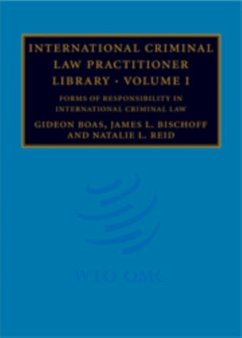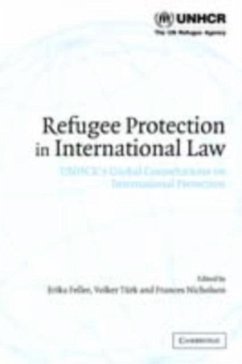
Atrocity, Punishment, and International Law (eBook, PDF)
Versandkostenfrei!
Sofort per Download lieferbar
25,95 €
inkl. MwSt.
Weitere Ausgaben:

PAYBACK Punkte
13 °P sammeln!
This book argues that accountability for extraordinary atrocity crimes should not uncritically adopt the methods and assumptions of ordinary liberal criminal law. Criminal punishment designed for common criminals is a response to mass atrocity and a device to promote justice in its aftermath. This book comes to this conclusion after reviewing the sentencing practices of international, national, and local courts and tribunals that punish atrocity perpetrators. Sentencing practices of these institutions fail to attain the goals that international criminal law ascribes to punishment, in particula...
This book argues that accountability for extraordinary atrocity crimes should not uncritically adopt the methods and assumptions of ordinary liberal criminal law. Criminal punishment designed for common criminals is a response to mass atrocity and a device to promote justice in its aftermath. This book comes to this conclusion after reviewing the sentencing practices of international, national, and local courts and tribunals that punish atrocity perpetrators. Sentencing practices of these institutions fail to attain the goals that international criminal law ascribes to punishment, in particular retribution and deterrence. Fresh thinking is necessary to confront the collective nature of mass atrocity and the disturbing reality that individual membership in group-based killings is often not maladaptive or deviant behavior but, rather, adaptive or conformist behavior. This book turns to a modern, and adventurously pluralist, application of classical notions of cosmopolitanism to advance the frame of international criminal law to a broader construction of atrocity law and towards an interdisciplinary, contextual, and multicultural conception of justice.
Dieser Download kann aus rechtlichen Gründen nur mit Rechnungsadresse in A, B, BG, CY, CZ, D, DK, EW, E, FIN, F, GR, HR, H, IRL, I, LT, L, LR, M, NL, PL, P, R, S, SLO, SK ausgeliefert werden.













